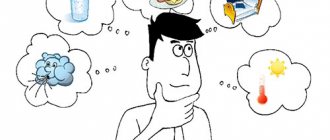The personality of a person and its relationship with the outside world is always an urgent problem raised in all written works on the Russian language, including the Unified State Examination, for the composition of which arguments from fiction and life are necessary. A graduate of any general education institution should be able to express his thoughts, relying on the experience of other people who are more knowledgeable in a particular field. The ability to use reliable material will undoubtedly be useful throughout your life. Therefore, our team decided to help in collecting the necessary information to prepare for the exam by creating this collection of arguments.
The author's attitude to the problem
The main influence on the formation of human personality is exerted by society. Man and society are always closely interconnected and cannot exist separately from each other. It is the environment and surroundings in which a child grows that determines who he will become. If, for certain reasons, a person is forced to find himself outside of society, he feels loneliness, inferiority, and often even degrades. The privilege of being born as an individual is given to everyone, but it can only be preserved and developed through constant work on oneself.
"A Clockwork Orange" (1962)
Anthony Burgess
Alex combines within himself a love of violence and beauty. He is a victim of his time, who is also the executioner of the system. After a juvenile delinquent is placed in an experimental re-education program, he loses the part of himself that was responsible for his will to live. Without inner impulses, Alex becomes subhuman. And Beethoven’s favorite music now only causes nausea.
You shouldn't expect a happy ending here. This book is a reflection on the nature of human cruelty and the desire for beauty.
Arguments
- A person can be considered a person who is able to live in harmony with himself and the world around him.
- Personal freedom ends where the freedom of another person begins.
- The problem of the human personality has always been the main problem of philosophy.
- The concept of personality is the basic concept of pedagogy.
- Not every person can be called a person.
- You must have a certain set of qualities in order to have the right to be called a person.
- In order to form your personality, you need to constantly develop and improve yourself.
- People become individuals through the process of socialization.
- A person is not born a person, but becomes one.
- Personality is what distinguishes a person from an animal, which does not have a personality.
"It's Perks to Be a Wallflower" (1999)
Stephen Chbosky
Charlie is too naive for his fifteen years. Expressing a personal opinion, fighting for a place in the sun is not for him. Charlie understands books better than people. He is cosmically alone, although there is always someone next to him. The hero keeps a terrible secret even from himself.
There are no difficult words in this work. It has a world shown through the eyes of an introvert.
Epithets for the word “personality”
Authoritative, noble, outstanding, heroic, exceptional, historical, colorful, independent, unique, charming, gifted, original, attractive, original, bright, freedom-loving, creative, bright, artistic, sublime, impressionable, brilliant, chosen, noble, generous, refined, graceful, musical, poetic, talented, subtle, refined, artistic, sensitive, aesthetic, hare, broken, flint, fiery, lax, self-educated, active, restless, fearless, rich, cheerful, fighting, eccentric, domineering, power-hungry, strong-willed, receptive, flexible, deep, despotic, wild, lively, cheerful, mysterious, confused, exceptional, seeking, ebullient, strong, mighty, powerful, courageous, rebellious, persistent, remarkable, independent, frantic, unbridled, incomprehensible, restless, nervous, unbending, restless, indomitable, unbalanced, tireless, sociable, open, optimistic, responsive, agile, simple-hearted, direct, impetuous, ardent, versatile, rare, decisive, Russian, original, independent, free, restrained, sincere, Slavic, strong, complex, brave, persistent, passionate, extravagant, firm, temperamental, titanic, demanding, addicted, stubborn, fanatical, fanatical, integral, gypsy, pure, sensitive, generous, sensual, sensitive, broad, extravagant, eccentric, emotional, energetic, delicate, energetic.
Apathetic, apathetic, weak-willed, sluggish, rotten, closed, inert, icy, lazy, cowardly, deathly, dreamy, soft, shallow, uncommunicative, unemotional, pliable, subordinate, slavish, reflective, timid, loose, weak, contemplative, calm, dry, dull, solitary, phlegmatic, phlegmatic, cold, shameless, vile, criminal, vile, unattractive, base, insignificant, disgusting, disgusting, suspicious, vile, criminal, feigned, nasty, gray, slippery, wolfish, dual, two-faced, rude, oaky, soulful, caustic, bilious, brutal, spoiled, insidious, crafty, petty, petty, dishonest, base, suspicious, vulgar, irritable, selfish, quarrelsome, vain, narrow, predatory, callous, ambitious, selfish, selfish.
Examples from fiction
- M.Yu. Lermontov "Hero of Our Time" .
In the novel by M.Yu. Lermontov’s “Hero of Our Time” presents the image of an extra person in the person of Grigory Pechorin. The main character came from an influential noble family, so from childhood he was surrounded by rich and careless people. As he grows up, he gets tired of this society, social evenings and balls do not interest the young man, he is seriously interested in science.
Pechorin's inner world was empty, and the reason for this was the development of his personality. From early childhood, his surroundings accustomed him to an empty life, prophesying an equally empty future. The main character wrote in his personal diary that his modesty was regarded as a lie, his secrecy was due to a lack of affection, his anger was the result of constant insults, he was ready to love everyone, but in the end he hated everyone.
Throughout the entire work, Pechorin tries to overcome his inner emptiness, but his efforts are in vain. All his undertakings end in failure, Grigory knew this, so he constantly experienced mental anguish. The endless internal struggle deprived him of everything necessary for a full-fledged existence; all these torments made him an “extra person” among other people.
Pechorin doesn't like anyone, he doesn't even have close friends. The desire to meet and talk with new people has long disappeared; he finds an excuse for himself, which consists in the value of his own freedom. In fact, this is just isolation, a weak side of his personality. Pechorin is not afraid of betrayal, but of losing his independence. It seems to him that people necessarily encroach on the personal freedom of a loved one, unceremoniously break into the established foundations of life and break them, without regard to anyone’s opinion.
As a result, Pechorin, having never found meaning in life, dies. M.Yu. Lermontov tried to convey that every person should have a goal. A meaningless existence always leads to moral decline or physical death, and what is worse is unknown. There are “superfluous people” in every era, some are born before the right time, others live in the past.
It is no coincidence that the novel is called “A Hero of Our Time”; it is not about a specific person, but about the entire young generation of the 19th century. Their rich world could not stop the spiritual devastation leading to indifference and loss of meaning in life.
- D. Defoe "Robinson Crusoe".
The main character of the world famous novel by D. Defoe is Robinson Crusoe, who was a man who preserved his personality in difficult conditions. Since childhood, Robinson was drawn to the sea, but his father wished him a different future, choosing a career as a judge. The boy, contrary to his father's prohibitions, ran away from his home and fulfilled his dream. Robinson faced many trials, but the most difficult was ending up on a desert island.
In such conditions, any person can become a savage, but the main character stubbornly fought for life. For twenty-eight years Robinson Crusoe lived far from civilization. The main idea of D. Defoe was to present the factors that help a person survive in such difficult conditions. Only indestructible fortitude can allow a person not only not to lose himself, but also to create a semblance of civilization around him. Robinson is helped not to go crazy without society by constant study and conquest of the surrounding nature, as well as persistent, incessant work. The main character appears first as a hunter and fisherman, and then as a farmer, artisan and cattle breeder.
One of the most significant episodes of the novel is the appearance of Friday and his subsequent communication with Robinson. For a lonely sailor, this native became a sunshine in an impenetrable darkness. The greatness of Robinson Crusoe's personality lies in the fact that he did not fall into despair when he found himself on a desert island. Faith in the best helped him create all the necessary conditions for life; the only thing missing was society, which he found in the person of Friday. The main character strives not only for simple communication with a new friend, he hopes to make him a civilized person. Gradually, he manages to introduce the native to the benefits of spiritual and material culture and acquire a noble and capable student.
Using the example of Friday, D. Defoe wanted to show that even a savage is capable of becoming an individual if he is helped to take the path of self-improvement. In addition, the author wanted to show that the human personality develops rapidly in difficult conditions, it is important to simply not forget who you are.
- A.P. Chekhov "Ionych" .
The main character of the story A.P. Chekhov “Ionych” is a young doctor assigned to the zemstvo hospital, Dmitry Ionych Startsev. He was an ardent young man who strove for high ideals and most of all in life wanted to benefit people and his Fatherland. The young doctor spoke with enthusiasm about the happy future of the state, about the benefits of work and love. He devoted himself completely to work, not resting even on holidays. In his beliefs, he was very different from the rest of the city’s residents, so they irritated him not only with their personal views and conversations, but even with their appearance. Startsev realized that he could only play cards with them, have fun and talk about simple topics.
One day, fate brought the main character together with the Turkin family, which, according to the townspeople, was the most educated and talented. Ivan Petrovich Turkin knew how to make jokes, played in plays, showed magic tricks, and his wife wrote novels and stories, which she presented to guests at parties. Their daughter Ekaterina Ivanovna loved to play the piano and dreamed of a future as a famous pianist. At home she was affectionately called Kitty. At the very first meeting, Dmitry Ionych was fascinated by the Turkins family, and fell madly in love with Ekaterina Ivanovna. It seemed to him that he was ready to do anything for the sake of his love, but, having received a refusal to propose marriage, he suffered for three prescribed days and began to live his former life. The main character turned out to be simply incapable of deep and serious feeling. In addition to his personal relationship with Kotik, he was worried about how much dowry they would give for her.
Startsev was a person who was always above petty philistine interests, and because of the desire for a calm and comfortable life, he became as immoral and insignificant as all the inhabitants of the city. He got used to a meaningless life and over time accepted it as a given, and even lost his zeal for work. Now every evening he spent at the club playing vint. When Kotik realized her mistake, she was faced with a lazy and spiritually and morally fallen person who was unable to create and love her own family.
As a result, the young doctor was overcome by greed and an insatiable passion for acquiring property. He became one of the hated ordinary people who just yesterday began to call Startsev, in their own way, simply Ionych. From then on, his life became empty and meaningless, his soul lost all the best that was in it. The loss of high goals led the main character to spiritual decline and personality degradation.
"The Catcher in the Rye" (1951)
Jerome David Salinger
Holden Caulfield suffers from unmotivated aggression, pathological irritability and undisguised cynicism. Having lost the meaning of life and lost the opportunity to influence the course of significant situations, he begins to deny reality. No, he's not weird. He's just 17.
The book doesn't have a 1000-page twisted plot. It has the soul of the younger generations, rebels and fighters against the system.
Examples from life
- Emelyan Pugachev is a vivid example of a person who was a hero for some people, and a criminal for others. For the rebel peasants he was a liberator, and for the nobles he was a murderer. The future rebel was born into a Don Cossack family, so a freedom-loving disposition was in his blood. It was in these places that Pugachev’s predecessor, Stepan Razin, was born a century earlier. At the age of eighteen, Emelyan entered military service and immediately found himself in a military campaign against Prussia. He then took part in the Seven Years' War and the Russian-Turkish War. After 10 years, he reached the rank of standard bearer, but served there for only a year, deserting from the army to the North Caucasus. The reason for Pugachev’s rebellious inspiration was the adoption of the imperial decree “On the liberties of the nobility,” in which serfdom was consolidated for another hundred years. At that time, free settlements of Cossacks, merchants and fugitive peasants grew throughout Russia. People longed for freedom, but nothing changed. A conflict was brewing between representatives of the oppressed population and the landowners, Pugachev simply took the position of leader, expressing the people's idea. The peasants saw in him the ruler of a free state, therefore, without hesitation, they followed their leader. Pugachev often resorted to lies in order to please everyone without exception. After an unsuccessful rebellion, the peasant leader was arrested and sent to lifelong hard labor, from which he managed to escape in the first year of imprisonment. Hearing about the suppression of the Yaik uprising, Pugachev went to the Urals, deciding to present himself as the legitimate heir to the throne as Peter III. He wanted to lead the Cossack army in order to return control of the state to the deposed emperor through deception. The former Cossack really dreamed of creating a peasant kingdom, headed by a peasant tsar. His naive dreams found a response in the hearts of dissatisfied peasants and Cossacks, so they turned a blind eye to how their leader was moving towards his goal. Pugachev used methods of bloody violence and carried out terrible reprisals against state military personnel and landowners. Due to numerous robberies and robberies, Pugachev’s army was called a gang. Now historical sources disagree on whether the cities and villages that were attacked by Pugachev were waiting for the liberation, or were simply afraid of the cruel rebel. The result of the Peasant War was the destruction of more than 3,000 noble families and the destruction of a large number of factories, Orthodox churches, fortresses and entire cities. Pugachev never managed to bring his original ideas to life; the freedom fighter was mired in bloody crimes. The result of his actions was the death sentence of Catherine II.
- A striking example of the loss of one’s own identity is the Orthodox girl of noble origin, Ksenia Grigorieva Petrova, who lived in St. Petersburg in the 18th century. Her husband was a court singer, who eventually reached the rank of colonel. The sudden death of her husband shook the twenty-six-year-old girl to the core; she decided to renounce all worldly goods, including herself. Ksenia chose the difficult path of foolishness, which meant deliberately appearing stupid and insane. The meaning of such a sacrifice was to give God the most valuable thing a person has - the mind, and thus to beg the Almighty for the repentance of the soul of a suddenly deceased beloved. Ksenia abandoned everything she had: wealth, nobility, kinship, even her own personality. She donated her husband’s house to a friend renting a room from them, distributed all the property to the poor, renounced her name, answering only to her husband’s name, dressed in his clothes and said that he was alive, and Ksenia Petrova died. Relatives and friends of their family believed that the widow was distraught with grief and were very sorry for her. After the funeral, the girl went to wander the streets of St. Petersburg. She wandered for days on end: in heat, cold, rain, snow, being subjected to constant bullying and ridicule. Her strange outfit, meekness and unintelligible speeches always gave rise to evil people. But blessed Ksenia prayed incessantly and resignedly endured all insults, continuing her saving feat. At this time, construction began on a stone church at the Smolensk cemetery. The structure was already quite high and the builders had to first lift the bricks onto the scaffolding and then continue the laying. Ksenia decided to help good people in their difficult task and at night she began lifting bricks alone to the top rows of scaffolding. In the morning the workers were amazed, wondering who their invisible helper was. One day, coming to the church at night, they saw the crazy Ksenia lifting heavy bricks. Over time, people began to understand that the girl was not just crazy, there was something about her. She accepted alms only from kind and honest people, giving it immediately to other beggars. During the day she always wandered around the city, and at night she went to the field, where she whiled away the time in prayer. Soon, those around her began to notice that Ksenia’s words and actions contained a deep meaning: if she asked a person for something, then trouble was knocking on his house, and if, on the contrary, she gave, joy awaited the person. Later, everyone began to ask her for blessings - merchants for a successful trade, mothers for their children, sick people for healing. Ksenia of Petersburg spent forty-five years in the feat of foolishness. More than 200 years have passed since her death, but the people's memory of the blessed one does not dry out and now she is canonized.
Alexander II
After Peter the Great, this was the only tsar who began to carry out such large-scale reforms. His innovations completely renewed the appearance of Russia. Like other famous personalities who changed the course of history, this ruler deserved respect and recognition. The period of his reign falls on the 19th century.
The main achievement of the tsar was the abolition of serfdom in Russia, which hampered the economic and cultural development of the country. Of course, Alexander the Second’s predecessors, Catherine the Great and Nicholas the First, also thought about eliminating a system very similar to slavery. But none of them decided to turn the foundations of the state upside down.
Such drastic changes occurred quite late, since a rebellion of dissatisfied people was already brewing in the country. In addition, reforms stalled in the 1880s, which angered revolutionary youth. The reformer Tsar became the target of their terror, which led to the end of the reforms and completely influenced the development of Russia in the future.
Folk wisdom
- “A man is great in his deeds . This proverb says that human greatness is manifested in actions, not in words.
- “It’s not the place that makes a person, but the person that makes the place . Our wise ancestors knew that a good person is an adornment to any place.
- . ” This proverb says that all people are different, with their own strengths and weaknesses.
- "All that glitters is not gold . The meaning of this proverb is that an outwardly attractive person may have a rotten soul.
- “Judge not by appearance, but by deeds . This proverb says that a person can only be judged by his actions. Appearance means nothing.
- “Outside there is beauty, inside there is emptiness . Our wise ancestors said that an outwardly beautiful person can be completely empty on the inside. It is spiritual beauty that matters, not physical beauty.
- “What is the character, so are the actions . This proverb says that a person’s actions depend on his character. A good person has good actions, a bad person has bad actions.
- “What the vessel is filled with is what flows out of it . In this proverb, a person is compared to a vessel. If there is water in a vessel, water flows from it; if a person is filled with kindness, he sows goodness around him.
- “Even though he’s covered in patches, he’s a guy with a grip . This proverb says that a person can be capable of much, regardless of his appearance.
- “A bad man loves no one but himself . The meaning of this proverb is that bad people are selfish. They are only interested in their own well-being.
Mikhail Lomonosov
He lived and worked during the reign of Peter the Great. Then the emphasis was placed on the development of education and enlightenment, and the first Academy of Sciences was created in Russia, in which Lomonosov spent many of his days. He, a simple peasant, was able to rise to incredible heights, run up the social ladder and turn into a scientist, whose trail of fame stretches to this day.
He was interested in everything related to physics and chemistry. He dreamed of freeing the latter from the influence of medicine and pharmaceuticals. It was thanks to him that modern physical chemistry was born as a science and began to actively develop. In addition, he was a famous encyclopedist, studied history and wrote chronicles. He considered Peter the Great an ideal ruler, a key figure in the formation of the state. In his scientific works, he described him as an example of a mind that changed history and turned the idea of the management system upside down. Through the efforts of Lomonosov, the first university in Russia was founded - Moscow. Since that time, higher education began to develop.
Aphorisms
- “A personality is characterized not only by what it does, but also by how it does it . The German politician and philosopher Friedrich Engels said that a human personality can be characterized not by actions, but by the way they are performed.
- “The best way to find yourself is to stop serving other people . Indian political and public figure Mahatma Gandhi believed that you can find your own personality only when you stop subordinating to others.
- “Of all the vices that degrade a person’s personality, selfishness is the most vile and despicable . The English writer William M. Thackeray considered the most terrible human vice to be selfishness. This quality, in his opinion, degrades a person’s personality.
- “Trying to be yourself is the only way to succeed . The French writer Stendhal wrote that success comes only to those who try to be themselves. Luck doesn't like falsehood.
- "Don't do something just because others are doing it . L.N. Tolstoy encouraged people to be individual. There is no need to try to be like those around you; such behavior kills the human personality, according to the great writer.
- “Our personality is a garden, and our will is its gardener . The world-famous English writer W. Shakespeare believed that only willpower makes a person an individual.
- “Our thoughts make us . The Roman philosopher, poet and politician Lucius Annaeus Seneca said that what makes a person a person is his thoughts. You can deceive others, but you cannot deceive yourself.
- “Each of us coins the price of our personality; a person is great or small depending on his own will . The Scottish writer and reformer Samuel Smiles said that man is a self-made man. Everyone can become worthy, you just need to make an effort.
- “The right to stupidity is one of the guarantees of the free development of the individual . American writer and public figure Mark Twain believed that every person has the right to be stupid. People learn from mistakes and develop their personality.
- “Every noble person is deeply aware of his blood relationship, his blood ties with the Fatherland . Russian literary critic V.G. Belinsky was confident that a truly noble person highly values his family and his homeland. These qualities make a person worthy.











